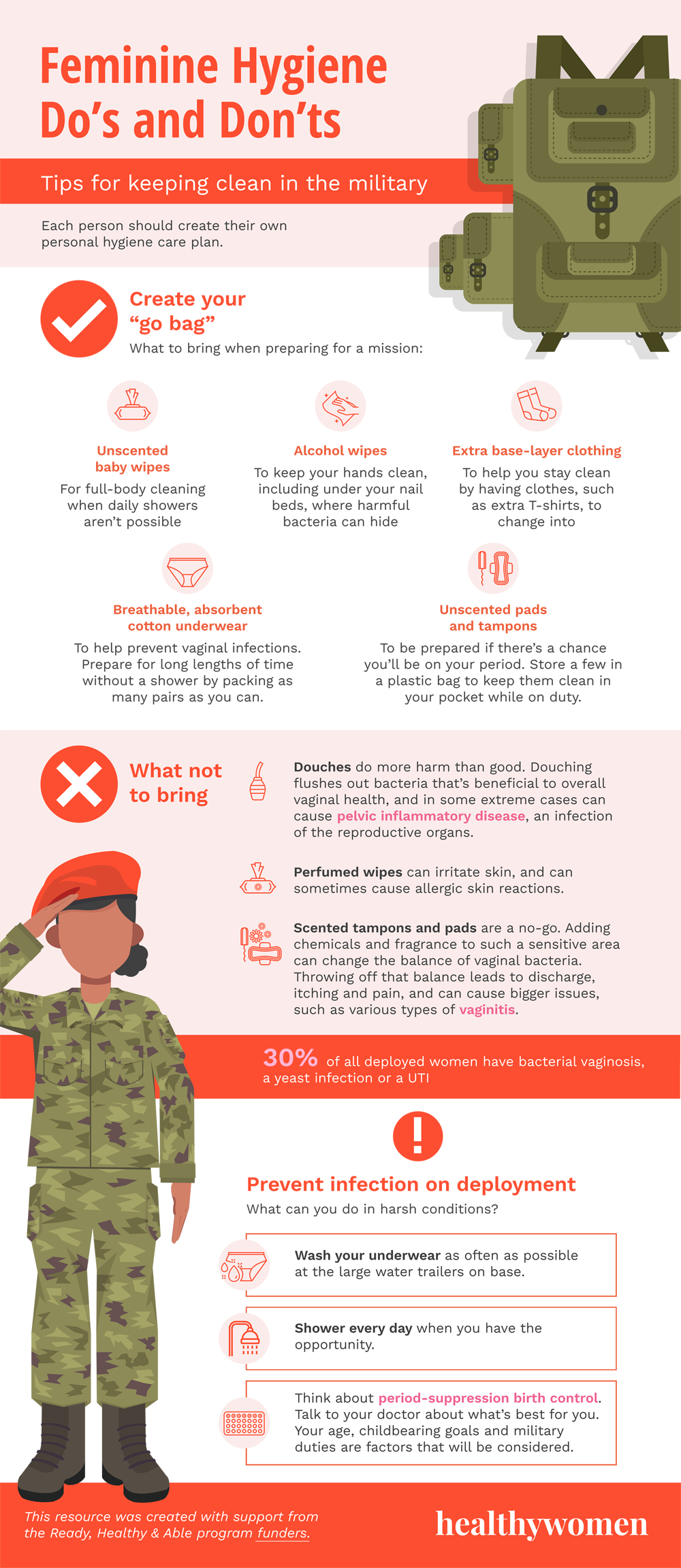Proper feminine hygiene practices while on duty are key to the physical and mental health of servicewomen and service members with female biology.
Each person should create their own personal hygiene care plan.
Create your “go bag”
What to bring when preparing for a mission:
- Unscented baby wipes
For full-body cleaning when daily showers aren’t possible - Alcohol wipes
To keep your hands clean, including under your nail beds, where harmful bacteria can hide - Breathable, absorbent cotton underwear
To help prevent vaginal infections. Prepare for long lengths of time without a shower by packing as many pairs as you can. - Extra base-layer clothing
To help you stay clean by having clothes, such as extra T-shirts, to change into - Unscented pads and tampons
To be prepared if there’s a chance you’ll be on your period. Store a few in a plastic bag to keep them clean in your pocket while on duty.
What not to bring:
- Douches do more harm than good. Douching flushes out bacteria that’s beneficial to overall vaginal health, and in some extreme cases can cause pelvic inflammatory disease, an infection of the reproductive organs.
- Perfumed wipes can irritate skin, and can sometimes cause allergic skin reactions.
- Scented tampons and pads are a no-go. Adding chemicals and fragrance to such a sensitive area can change the balance of vaginal bacteria. Throwing off that balance leads to discharge, itching and pain, and can cause bigger issues, such as various types of vaginitis.
Prevent infection on deployment
What can you do in harsh conditions?
Wash your underwear as often as possible at the large water trailers on base.
Shower every day when you have the opportunity.
Think about period-suppression birth control. Talk to your doctor about what’s best for you, Your age, childbearing goals and military duties are factors that will be considered.
30% of all deployed women have bacterial vaginosis, a yeast infection or a UTI
















